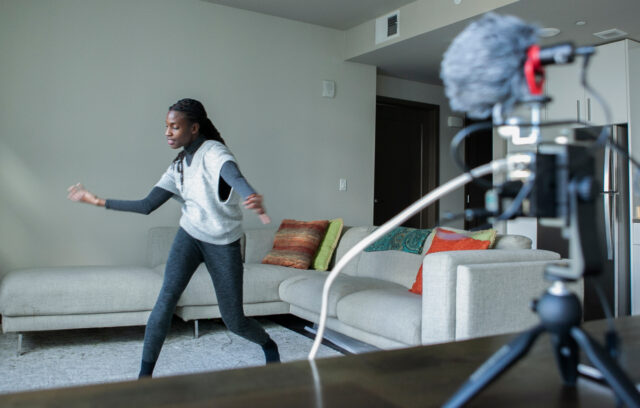We are amid a global tech emergency; the act of discovery and creation by artists is more necessary than ever. In this digital-first fellowship cycle beginning February 15, 2024, through August 15, 2024, we call on artists to bring their innate mental, spiritual, and physical aspects of what it means to be human into play with technology to affirm humanity’s role as creators, not spectators, of our collective techno-future.
Technology has transformed how we live, work, and communicate. Still, it has also brought new challenges related to its impact on society, forcing the world to reconsider the meaning of previously understood ideas such as intelligence, free will, or personhood. Tools such as generative artificial intelligence are infiltrating our lives to the point of wresting control of innately human spiritual, mental, and physical ways of being. Algorithmic systems of oppression that further marginalize underrepresented communities reiterate the urgent need to build tangible alternatives that center care, community, and solidarity.
Groundbreaking artists working at the complex intersection of art, tech, and community are uniquely positioned to address these challenges by launching projects that foster dialogue and engagement and further the imagination. Eyebeam seeks artists to explore the creative potentials of technologies that support and enhance the best of human intelligence and imagination. In particular, we are interested in supporting those artists whose efforts consider the impact of technology on individuals and communities who face additional barriers to access and inclusion.
Adopting a human-centric approach to technology, led by artists, can ensure that future technology is developed and used to promote human well-being and agency rather than corporate consumption. We believe in launching more humane uses of technology that allow space for contemplation, understanding, and aesthetic imagination.
Eyebeam is pleased to announce an Open Call for artists working deeply in the areas mentioned above, particularly those working within or developing technology that focuses on decolonization, reframing history, language, care, the digital divide, and the future of tech. We invite proposals considering how to avert anti-human technologies and re-assume control to build a more humane future.

